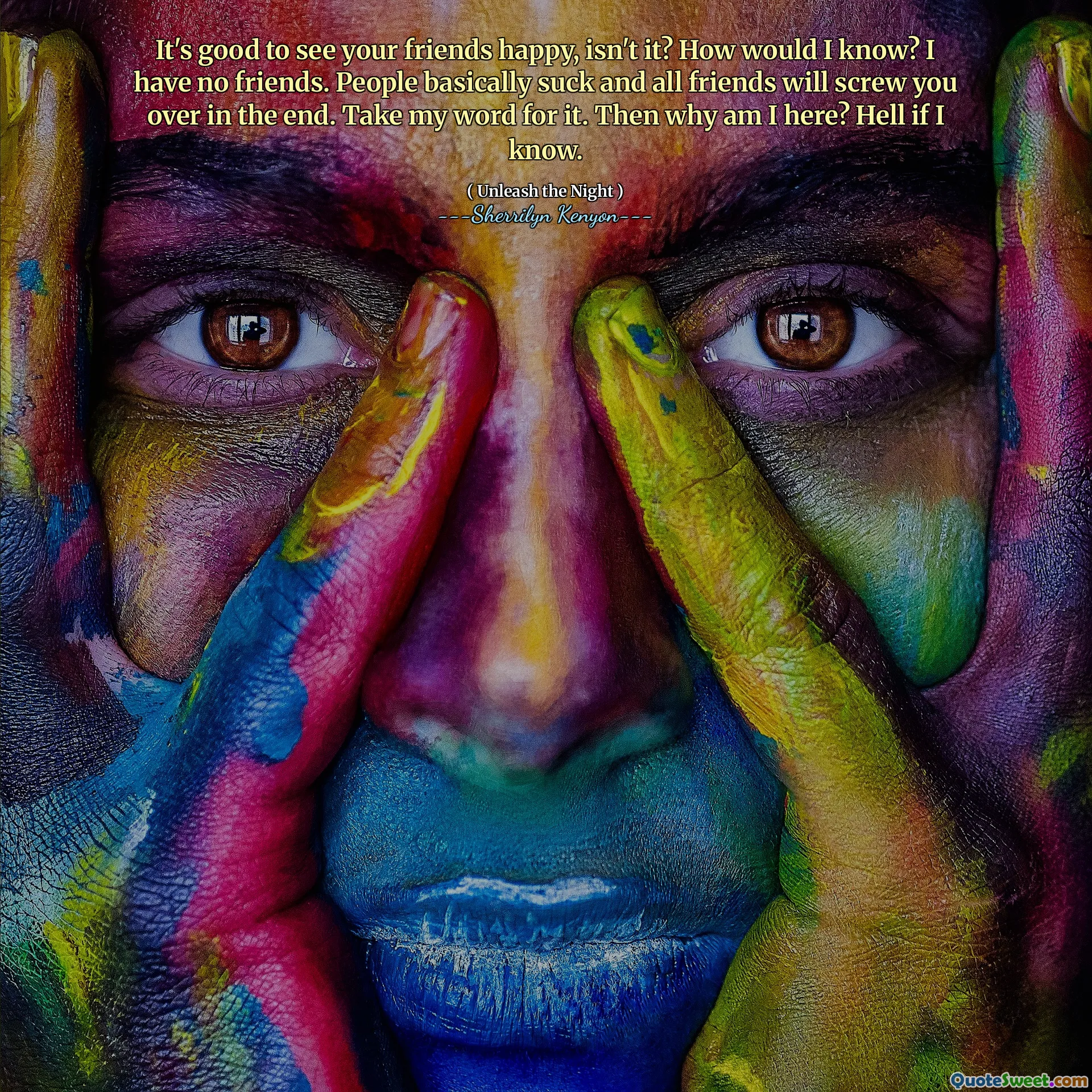
It's good to see your friends happy, isn't it? How would I know? I have no friends. People basically suck and all friends will screw you over in the end. Take my word for it. Then why am I here? Hell if I know.
This quote delves into themes of loneliness, disillusionment, and the complexity of human relationships. The speaker appears to have experienced betrayal or disappointment by the very people who are supposed to provide friendship and support, leading to a cynical outlook on social bonds. There's a raw honesty in expressing the belief that friends inevitably let you down, which resonates with many who have encountered heartbreak, abandonment, or betrayal in their social circles. Such sentiments reflect the human tendency to guard oneself against vulnerability, especially when past experiences have scarred trust. Despite the bleak worldview, the speaker's presence in a situation they question underscores a paradox common in human psychology—the desire for connection versus the fear of being hurt. This internal conflict exemplifies how unresolved emotional wounds can shape one's perceptions and actions. The quote also prompts us to consider the importance of trust and the difficult process of rebuilding relationships after betrayal. It challenges the reader to contemplate the assumptions about human nature—are people inherently selfish, or do they have the capacity for genuine kindness and loyalty? Ultimately, it highlights the importance of resilience and introspection in navigating social landscapes. Understanding these emotions and reactions is crucial in fostering empathy and compassion towards oneself and others, even in moments of deep cynicism, reminding us that human connections are complex and worth striving for, despite their fragility.






